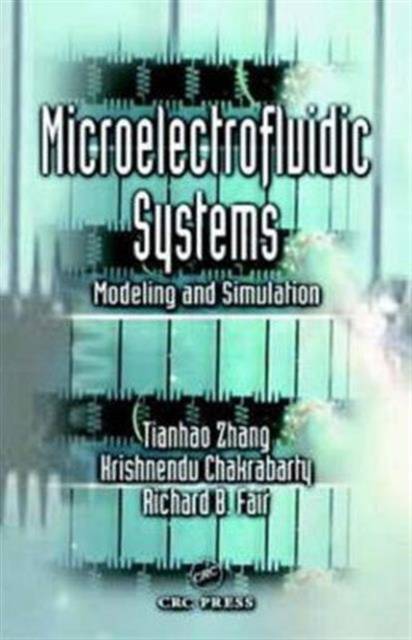
- Retrait gratuit dans votre magasin Club
- 7.000.000 titres dans notre catalogue
- Payer en toute sécurité
- Toujours un magasin près de chez vous
- Retrait gratuit dans votre magasin Club
- 7.000.0000 titres dans notre catalogue
- Payer en toute sécurité
- Toujours un magasin près de chez vous
Microelectrofluidic Systems
Modeling and Simulation
Tianhao Zhang, Krishnendu Chakrabarty, Richard B Fair
283,95 €
+ 567 points
Description
Composite systems that integrate microelectromechanical and microelectrofluidic (MEF) components with electronics are emerging as the next generation of system-on-a-chip (SOC) designs. However, there remains a pressing need for a structured methodology for MEFS design automation, including modeling techniques and simulation and optimization tools.
Integrating top-down and bottom-up design philosophies, Microelectrofluidic Systems presents the first comprehensive design strategy for MEFS. This strategy supports hierarchical modeling and simulation from the component level to the system level. It leads to multi-objective optimization tools valuable in all phases of the design process, from conceptualization to final manufacturing. The authors begin by defining the basic variables and elements needed to describe MEFS behavior, then model that behavior across three layers of abstraction: the low-level component, high-level reconfigurable architecture, and bio/chemical application layers. They have developed a hierarchical integrated design environment with SystemC and present its architecture and associated functional packages. Microelectrofluidic Systems is visionary in its leverage of electronic design principles for microsystem design and heralds a new era of automated SOC design. The strategy it presents holds the potential for significant reductions in design time and life-cycle maintenance costs, and its techniques and tools for robust design and application flexibility can lead to the high-volume production needed for the inevitably growing product market.Spécifications
Parties prenantes
- Auteur(s) :
- Editeur:
Contenu
- Nombre de pages :
- 284
- Langue:
- Anglais
- Collection :
- Tome:
- n° 3
Caractéristiques
- EAN:
- 9780849312762
- Date de parution :
- 17-05-02
- Format:
- Livre relié
- Format numérique:
- Genaaid
- Dimensions :
- 156 mm x 246 mm
- Poids :
- 576 g

Les avis
Nous publions uniquement les avis qui respectent les conditions requises. Consultez nos conditions pour les avis.






